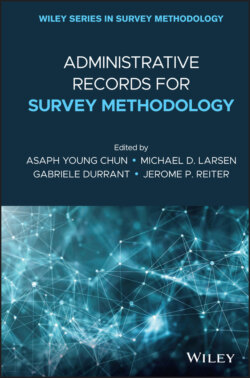Читать книгу Administrative Records for Survey Methodology - Группа авторов - Страница 51
2.4.3 Licensing
ОглавлениеUsers of secure research data centers always sign some form of legally binding user or licensing agreement. These agreements describe acceptable user behavior, such as not copying or photographing screen contents. However, licensing alone may also be used to provide access to restricted-use microdata outside of formal restricted access data centers. In general, the detail in licensed microdata files is greater than in the equivalent (or related) public-use file, and may allow for disclosure of confidential data if inappropriately exploited. For this reason, licensed microdata files tend to have several additional levels of disclosure avoidance methods applied, including output review in some cases. For instance, even without linkages, the HRS licensed files have more detailed geography on respondents (county, say, rather than Census region), but do not have the most detailed geography (GPS coordinates or exact address). Generally, the legally enforceable license imposes restrictions on what can be published by the researchers, and restricts who can access the data, and for what purpose. The contracting organization is the researcher’s university, which is subject to penalties such as loss of eligibility status for research grants if the license is violated.
In the United States, some surveys (NCES, NLSY, and HRS) use licensing to distribute portions of the data they collect on their respondents. Commercial data providers (COMPUSTAT, etc.) also license the data distributed to researchers. Penalties for license infractions range from restricting future research grant funding, for example in HRS, to monetary penalties, for example in commercial data licenses. We are not aware of any studies that quantify the violation rates or financial penalties actually incurred due to license violations. Licensing may be limited by the enforceability of laws or contracts, and thus may be limited to residents of the same jurisdiction in which the data provider is housed. Often, some licensing is combined with the creation of ad-hoc data enclaves, the simplest of these being stand-alone, nonnetworked computer workstations.
